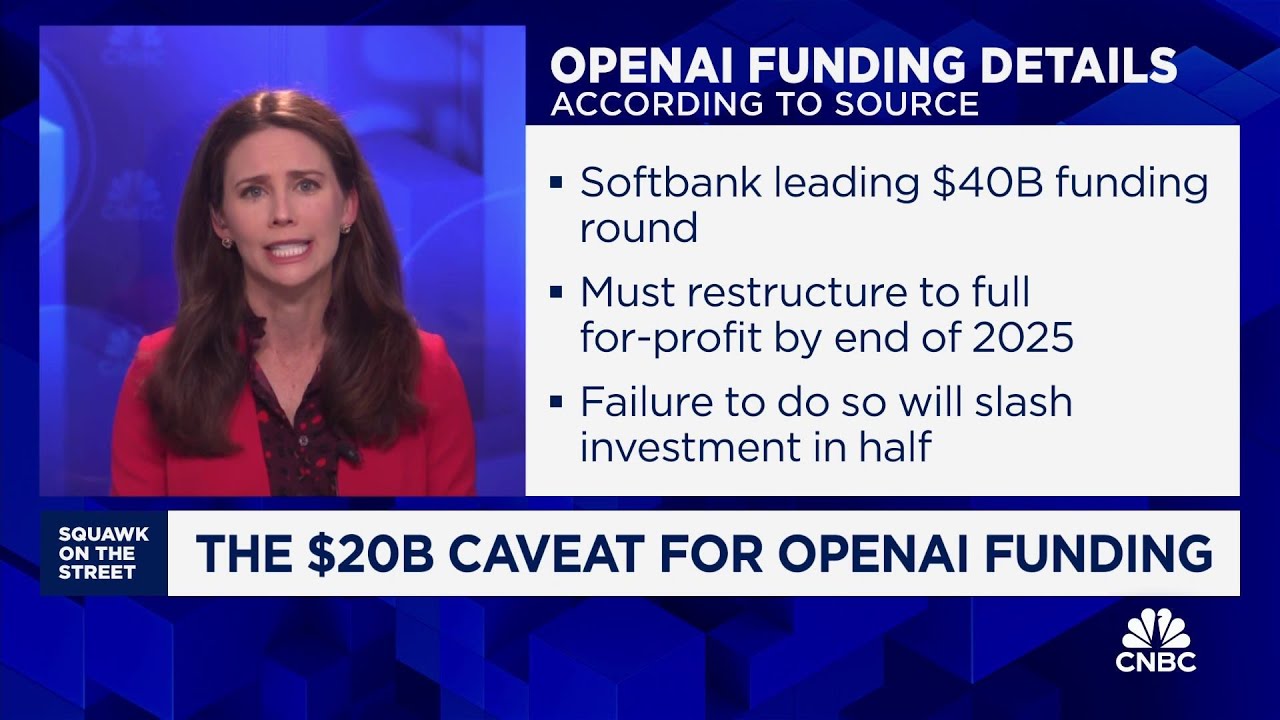OpenAI is facing a critical deadline to restructure into a fully for-profit entity by the end of the year in order to secure a $40 billion funding deal led by SoftBank, with failure to do so risking a reduction to $20 billion. Elon Musk, a co-founder, is opposing this restructuring through legal challenges, complicating the timeline and raising uncertainty about OpenAI’s ability to meet the funding requirements necessary for its ambitious projects.
OpenAI is currently navigating a significant funding deal worth $40 billion, primarily led by SoftBank. However, there is a crucial stipulation attached to this deal: OpenAI must restructure into a fully for-profit entity by the end of the year. If the company fails to achieve this restructuring, the funding could be halved to $20 billion. This restructuring involves transforming the existing capped for-profit model into a public benefit corporation, while the nonprofit aspect of OpenAI would be spun off.
Elon Musk, one of OpenAI’s founders, has emerged as a major obstacle in this restructuring process. He is actively opposing the plan, having filed lawsuits to block it, and has been vocal about his disagreements with OpenAI’s CEO, Sam Altman, on social media. Musk’s involvement adds complexity to the situation, especially given that he now competes with OpenAI in the AI space. The legal battles and Musk’s opposition could significantly impact the timeline for the restructuring.
SoftBank’s investment strategy includes an initial $10 billion through convertible notes, which will convert to equity once the restructuring is completed. The total investment from SoftBank is expected to reach $30 billion, with the remaining funds being sourced from other investors. This funding round, which has not yet been officially announced, is anticipated to value OpenAI at around $300 billion post-money, reflecting the immense financial stakes involved.
The timeline for achieving the restructuring is tight, with the end of the year approaching. There are additional hurdles to overcome, including obtaining approval from Microsoft and navigating legal scrutiny from the California attorney general. The combination of these factors raises uncertainty about whether OpenAI can meet the deadline, especially with Musk’s ongoing legal challenges complicating matters further.
The potential reduction in funding from $40 billion to $20 billion is significant, as OpenAI requires substantial financial resources to compete in the rapidly evolving AI landscape. The company needs this funding not only for operational costs but also for infrastructure projects, such as the Stargate project in Abilene, Texas. As the situation develops, the pressure is mounting on OpenAI to successfully navigate these challenges and secure the full funding necessary for its ambitious plans.
